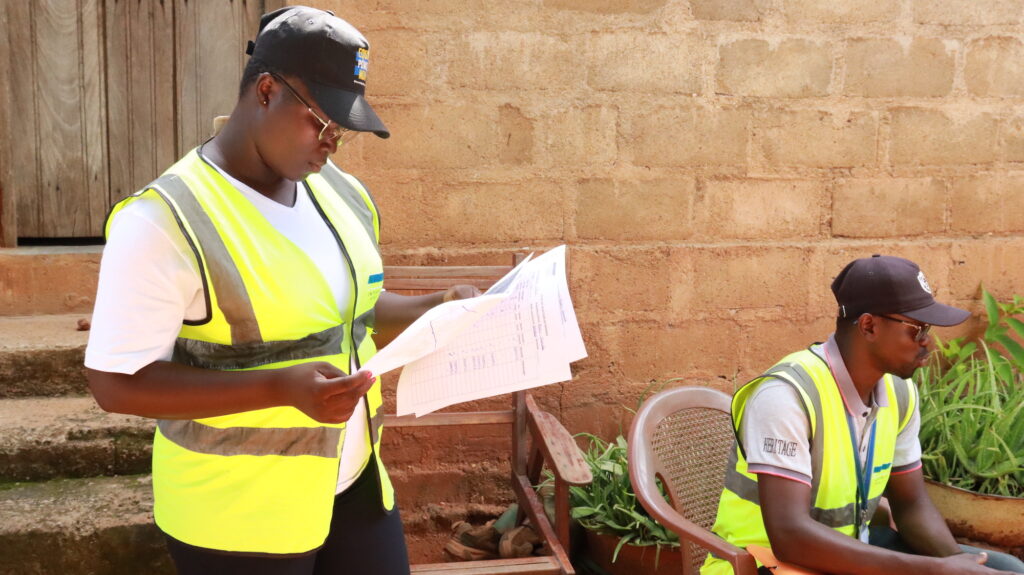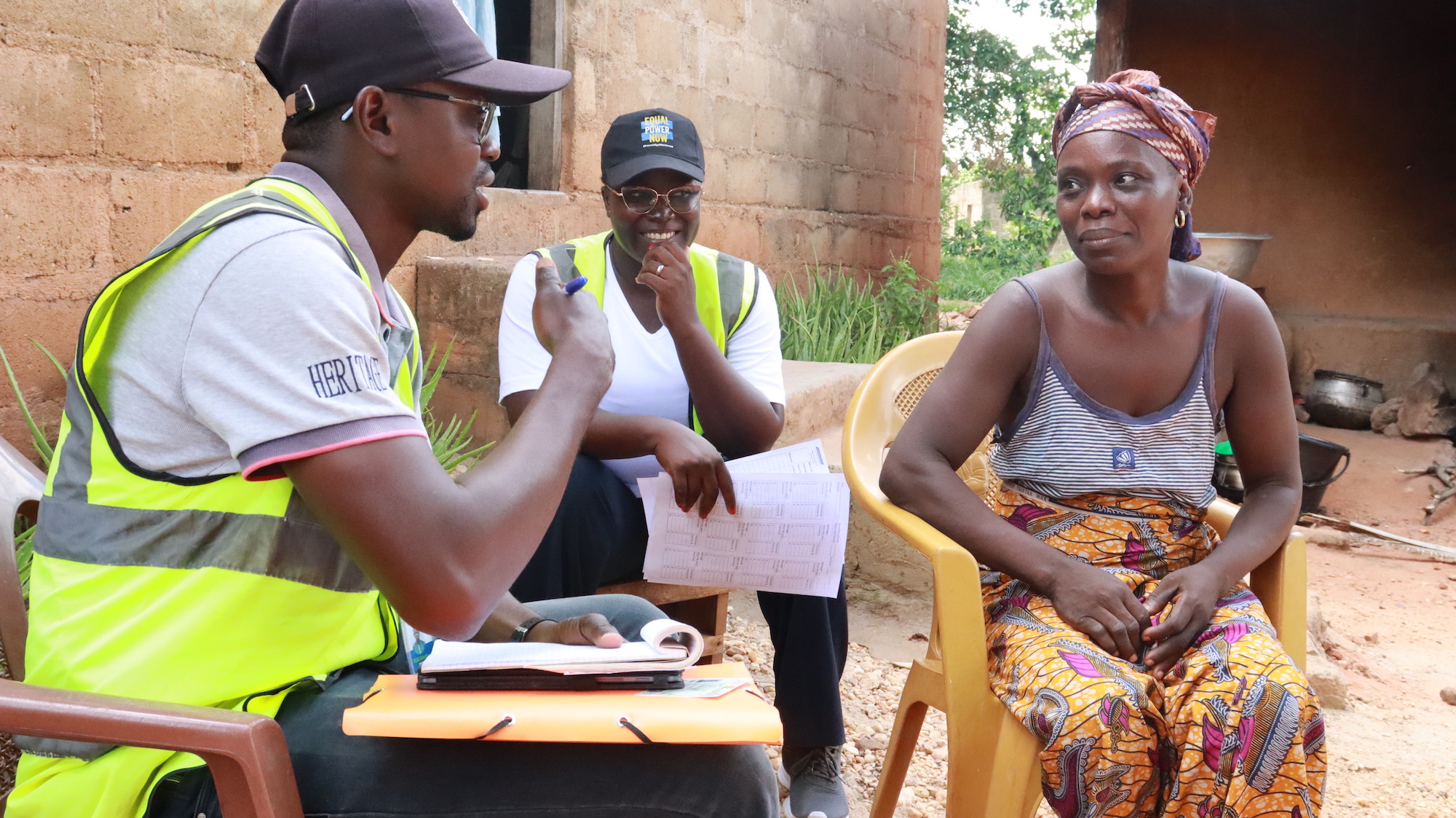At Integrate Health, we are driven by our mission to provide high-quality primary healthcare to everyone, wherever they are, whatever their financial situation might be. A critical aspect of this work relies on rigorous research. Our research not only enlightens us about the complexities of healthcare delivery and the barriers to healthcare faced by the communities we serve, but it also allows us to test innovative solutions, evaluate their effectiveness, and share our learnings with governments and the global community.
However, rigorous research cannot be done without accurate and reliable data. Today, we are delving into one crucial aspect of our research approach: our unique data collection process.
Four steps to build trust
Agnès Miziou, Integrate Health’s Research Coordinator, collects data used to measure the impact of our program. She is the person behind a process that begins weeks before any information is collected. When Integrate Health launches a new research inquiry or evaluation, Agnès enforces a participatory protocol that includes district authorities, community leaders, and health center at every step of the way. After planning for the required activities, she meets with the relevant district’s prefect (municipal government official). She explains the key research question, what the chosen methodology is, and answers any questions around the data collection process, planned analysis, and objectives. While this step is required by law, going into that level of detail isn’t. But Agnès does it to secure district authorities’ support. She recalls multiple situations where the prefect personally intervened to convince the community to participate.
Once she receives approval from the prefect, Agnès then goes to community leaders who are important decision-makers in communities. She engages them in meaningful conversation about the upcoming data collection, its purpose, and how the learnings will drive improved healthcare delivery in their communities. Community leaders are critical to mobilize community participation and enable trust. Without their trust, communities would rarely open their doors to data collectors. Agnès explains that “One time, we weren’t able to meet with the village chief during our preparation phase. We tried multiple times, but he wasn’t home, and data collection had to start. When he finally came home, he was furious and threatened to put a stop to everything. We explained that we did our best to reach him but were unsuccessful. After a good conversation, he finally gave us permission to continue, recognizing that we had done what we could.”
The next step during this phase of preparation consists of site visits. Using maps of the area, Agnès and her team go on scouting missions. These allow them to check their routes, take necessary security precautions, and confirm population estimates. Occasions have arisen where entire villages have had to relocate due to conflict. By visiting sites in advance, the team ensures that their sampling methodology aligns with on-the-ground realities. It also helps guarantee the safety of Integrate Health staff.

Finally, trust is further solidified through our hiring practices. We recruit and train data collectors, supervisors, and coordinators from the very communities we serve. This approach engenders trust and cooperation, which greatly contributes to our near-zero survey refusal rate. Being from these areas, our collectors not only speak the same language but also share the same customs and traditions. As Agnès explains, “Only someone from the area can navigate the nuances of entering a house, knowing who to approach first, or being aware of significant traditions. Missteps can be seen as highly disrespectful and result in people refusing to participate.”
The key to success: a community approach
Thus, by integrating these four steps—planning, engaging, visiting, and hiring—into our community-centered approach, we not only foster trust but also ensure accurate data collection. There is no data collection without meaningful engagement of key actors. Agnès remembers:
“Despite having followed our procedure, the situation was completely blocked. All of a sudden, the community refused to take part in the data collection process. We couldn’t get through to them. Fortunately, the prefect, the head of the health center, and a community leader all came together and resolved the situation. The community needed to hear from people they trusted. Very often, when we visit an area for the first time, we meet people who are tired of strangers coming in, asking questions, and promising things that they never deliver. Having these key stakeholders backing us and supporting us is critical.”
We’re proud of our approach to data collection, which respects and honors the communities we serve while giving us insights into the realities and needs in the field. Our collaboration with the communities further extends to the entire research process. Once our research is done, we go back to each community we surveyed and share the results. This is how we close the loop and ensure community ownership of the research process. This empowers us to make improvements to our Integrated Primary Care Program, steering us closer to our mission of health for all.

